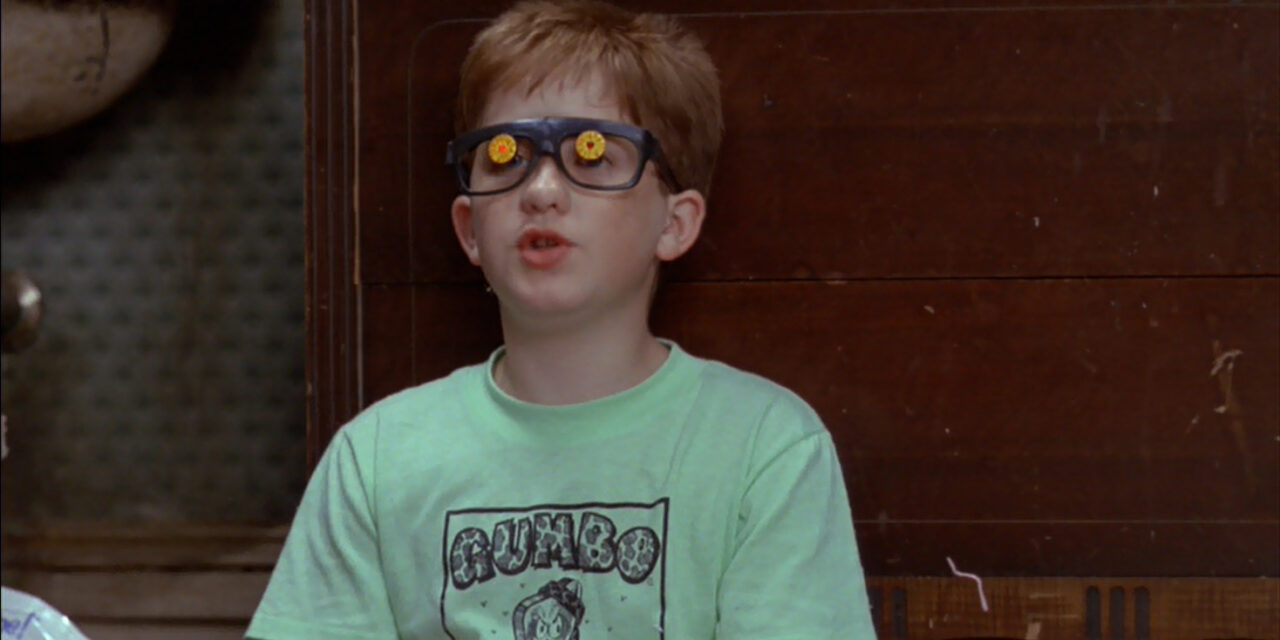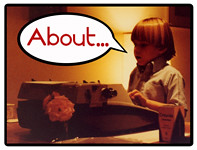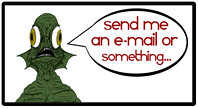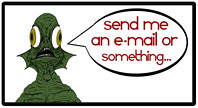This past week I dove back into my Awesome 80s Bedrooms dissections by taking a look at Josh Baskin’s childhood room in the 1988 Penny Marshall film Big. After posting that article a reader (The Navigator) pointed out the fact that there is an Extended Edition of the flick on DVD with some extra sequences in Josh’s room, so at the next opportunity I got I ran out to my local used DVD shop and picked up a copy. After watching through the longer version of the film I was sort of taken aback by a slight shift in the tone. Though the movie has a nice balance of slapstick, heart and sadness that has elevated it past its 80s zany comedy roots into a true cinema classic, most of the excised footage that was added back into film plays to the more somber notes of the story and in particular adds a whole new depth to the character of Baskin’s BFF (or BFK), Billy Francis Kopeke. About 10 minutes of these restored deleted scenes feature Jared Rushton’s Billy, and a sizable chunk of these are solo scenes focusing on the character’s home life, his interaction with Josh’s Mom and his mission to track down the errant Zoltar machine that will save his friend from a particularly nasty case of early onset adulthood. This footage gave me a new appreciation for Billy and it forced me to look at the movie with a whole new perspective. It alters the light-hearted comedic tone for me, as well as sort of switching the focus of the story from appreciating one’s own childhood to a sobering fight to save a friendship.
Before I dig into my new appreciation for Billy, I wanted to take a second and note that I love Jared Rushton’s performance in the flick. Rushton brought a realism to Billy that is lacking in so many of the other kid characters from 80s flicks that I adore. Don’t get me wrong, as much as I love movies like The Monster Squad, Explorers or the Goonies, a lot of the kids in these flicks were very obviously “acting”, lacking that natural, authenticity that made the characters feel, well, real. They tend to be caricatures of kids, which is great for what it is and for serving those stories, but it tends to hold these films back from feeling like true “classics”. A good comparison might be the difference between Stand By Me and say the Goonies. Both top favorites of mine, but no matter how much I praise and love Mikey, Data, Mouth and Chunk they don’t have that effortless relate-ability. They’re too “loud”, character-wise. For me, Rushton brought a much more nuanced take on Billy even for his scripted excitement over the Truck-a-Piller, or his overreacting tears when Hanks as Josh first approaches him in the school gym equipment room.
As for the character of Billy, while watching back through to film to try and spot a bunch of pop culture fun I noticed a couple things about Kopeke I hadn’t really processed before. For instance there’s the fact that he’s apparently a huge fan of monsters. He’s constantly sporting monster shirts throughout the flick, from the high contrast Wolfman image he’s wearing in the shot above, to the shirts featuring Frankenstein’s monster, the Creature, and even a Forbidden Planet tee in the shots below…
This also becomes a little more apparent when I took a closer look at Billy’s bedroom in the couple of scenes at the beginning of the film before Josh gets “Big”. You can see some Frankenstein and Mummy figures on the floor and in a toy crate…
Nothing Earth-shattering, but it was kind of a cool thing to notice personally since I’ve become such a monster kid over the last couple of decades. Anyway, getting back to the more developed version of Billy Kopeke, one of the first re-inserted scenes in the extended edition of Big follows Billy as he and Josh split up after coming home from their stick-ball game and massive session of “need it, got it, need it, need it, got it”. In the original version the sequences cuts to Josh and Billy in their PJs discussing whether or not Josh has a shot with Cynthia, the blonde from the credits sequence that he has a crush on. In the extended cut Josh gets a little whiny with his parents for insisting they moving his toddler sister into his room. What I found fascinating is that this is inter-cut with Billy going home to his family (who we see on screen for the first time, well at least we now know that they’re his family), and having to basically play the dual role of the invisible child/housekeeper.
The sequence shows him making dinner and setting the table as his rather large family bickers and zones out around the dinner table. No one thanks him as he pulls a roast from the oven and sets it down, or butters the potatoes and brings them to the table. There’s just a constant set of shrill complaints from his overbearing mother (uncredited but portrayed by the striking Francis Fisher) who ironically is lambasting her family for not lifting a finger to help her (as Billy does all the work.) He then proceeds to fix himself a plate and goes up alone to his room to eat and then talk with Josh, reassuring, encouraging and supporting his best friend through his girl-crush crisis.
Again, it’s not like this scene is so pivotal that it necessarily changes the course of the film perse, but it adds a depth to Billy really setting him up as the rock that so many people depend on and take for granted. The fact that he never complains, is always quick with an answer or joke, and is generally upbeat says a lot about his inner strength which Rushton exudes with ease. Since so much of the focus of the film rests on Tom Hanks’ shoulders, it’s easy to relegate Kopeke/Rushton to the friend who is there for the silly string puke fight and the confidant that agrees that Baskin needs to get his check changed into three dimes, a single hundred dollar bill, and eighty seven ones.
When you combine this sequence with the one at the school on the morning when Josh mystically ages up it gets slightly deeper. Alone in gym class, Billy is the awkward kid who shows a brave face and tries to participate (even if he thinks it’s dumb), only to be ridiculed and mocked by the rest of the class and blamed for a mess he didn’t create by the coach. Without Josh by his side Billy is utterly alone, both with no other apparent friends and no one in his family that even pays attention to him unless he’s on the phone (and then only to yell at him to get off.)
When you consider that Josh is off on an adventure in New York for six or seven weeks and then think about how much it must mean to billy to steal into the city and spend some quality time catching up, going out to a Yankees game or dancing on the back of a delivery truck, it makes the betrayal of Josh brushing off the search for the Zoltar machine sting all that much more. That brings up an interesting point between the two character’s differences too. When Josh is first freaking out about his predicament, Billy is there at every step of the way with an solution to the problem. He snags his father’s “emergency” fund risking who knows what kind of punishment from his folks. He takes Josh to the city and finds the hotel. He brings him clothes, suggests he get a job, helps him look, and even comes up with the social security number solution (even if it was three digits off, “oh-one-two.”) He’s also the only one really working to find the Zoltar. In some additional deleted sequences the film shows him calling through the list of companies and license holders that are on the list they ordered from the city.
Billy really is the more capable of the two, and when it comes right down to it he’s the only one who is fighting to keep their friendship alive. If it were up to Josh, he’d so easily move on. So at the end of the film, when Billy makes his last stand and storm into Josh’s office and throwing down the gauntlet of their friendship, after all the new material cut into the flick it really does make this scene more emotional. Again, it sort of changes the overall message of the film for me too. It’s not so much about Josh’s personal journey anymore, but coming back to his senses and ultimately coming back to his steadfast friend Billy Francis Kopeke (which is then underlined by book-ending the film with the two of them walking down the street after another game of stick-ball.) We should all have a BFF like Billy, or more accurately, a BFK.


































